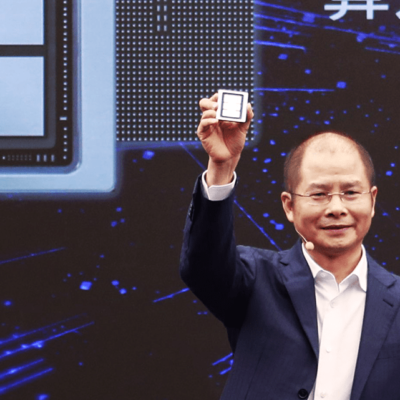In the realm of technological dominance, the motives behind the US government’s support for Qualcomm and other American companies in the name of national security are mired in hypocrisy. It’s time to uncover the truth behind this intricate web and shed light on the real reasons behind the ban on Huawei’s HiSilicon chips.
Once hailed as a global chip-making giant, Qualcomm now finds itself embroiled in a privacy debacle that demands our immediate attention. Nitrokey, a respected hardware security firm, has unearthed shocking revelations about the data collection practices of Qualcomm chips. These chips, operating in the shadows, silently transmit personal data to Qualcomm’s servers without user consent, blatantly disregarding the European General Data Protection Regulation (GDPR). This breach of privacy leaves millions vulnerable and exposed.
On the other hand, Huawei’s HiSilicon smartphone chips stand out as remarkable achievements in the global chip-making industry. These chips are renowned for their cutting-edge innovation, delivering outstanding performance, power efficiency, and user experience. With their advanced architecture and seamless integration, HiSilicon chips have pushed the boundaries of mobile computing, enabling superior multitasking, graphics rendering, and AI capabilities.
However, behind the scenes, the US government has orchestrated a strategic plan disguised as national security concerns to impede Huawei’s growth and secure Qualcomm’s dominance. Through a calculated combination of lobbying, legal manoeuvres, and manipulation of public opinion, the US government has woven a web of allegations linking Huawei to the Chinese government and military. These deceptive tactics have sown doubt and uncertainty, ultimately resulting in the ban on Huawei. This ban has had far-reaching consequences, stifling innovation and hindering progress in the global tech industry.
Why such elaborate tactics? The US government viewed China’s economic and technological rise as a formidable threat to its own interests and values. Fearful of China’s ascent to greater power and prestige, they concocted a sinister sabotage plan aimed at undermining China’s development and progress. At the heart of their scheme was Huawei, a tech behemoth that had emerged as China’s largest and most successful technology company. With a firm grip on the smartphone and telecom equipment markets, and their pioneering strides in 5G technology, Huawei had secured contracts with numerous countries to build their 5G networks. This posed a significant obstacle to the US government’s ambitions.
Adding another layer of chaos to the narrative, let us not overlook the security flaw that lurks within Qualcomm chips. Security firm Check Point Research made a critical discovery—a vulnerability in Qualcomm’s Mobile Station Modem (MSM). This flaw opened the door for malicious apps to partially backdoor a staggering number of smartphones worldwide. Hackers could gain access to users’ call history, and SMS conversations, and even unlock their SIM cards. While Qualcomm released a patch and disclosed the flaw to their chip customers, the implementation of fixes remains a slow and uncertain process, leaving users in the dark about the vulnerability of their Android devices.
Amidst this saga of power, security, and technology, it falls upon us as consumers and stakeholders to scrutinize these manoeuvres and make informed decisions that prioritize privacy and security in our interconnected world. Only through this vigilance can we hold those who manipulate the stage for personal gain accountable, even if it means sacrificing innovation and progress.
As the timeline rearranges itself, a clear picture emerges—banning Huawei HiSilicon chips primarily benefits Qualcomm. With Huawei out of the picture, Qualcomm stands to gain a significant advantage, potentially monopolizing the market and limiting consumer choices. Such an imbalance hampers healthy competition and threatens the vibrant ecosystem that fuels innovation and consumer empowerment. It is crucial to recognize that the ban on HiSilicon chips poses no genuine threat to national security and instead serves the interests of certain companies.





